
Swiss bid for UN Security Council seat sparks debate
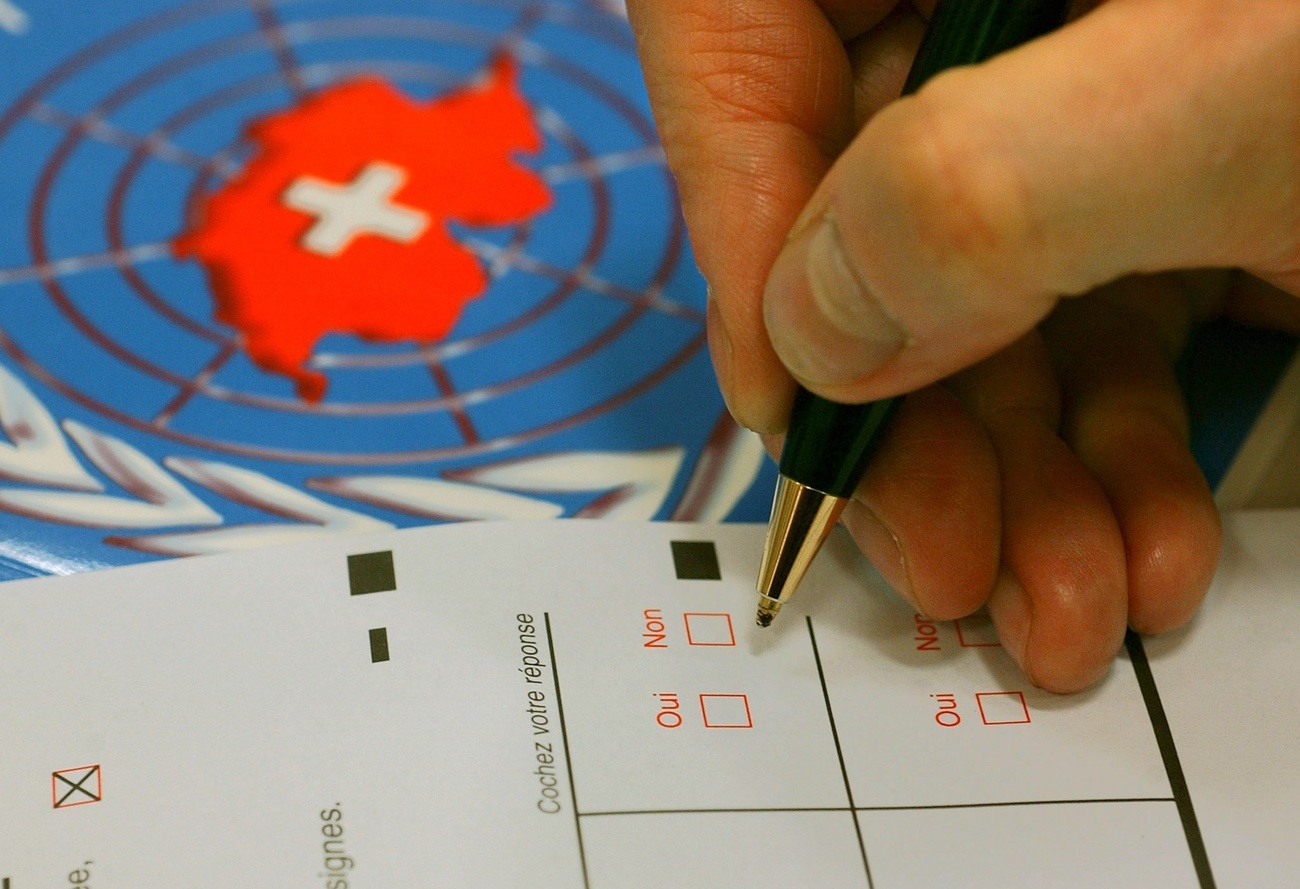
Switzerland’s accession to the United Nations was launched by the people and decided at the ballot box 20 years ago. Now the matter up for debate is whether the country should take a seat on the UN’s most important organ, the Security Council. This time it is a project driven by the government with no plans for a popular vote.
At the Foreign Office in London, the corks popped on March 3, 2002. The British Undersecretary of State for the UN, Denis MacShane described the Swiss vote in favour of joining the UN as a “fantastic result” and a “signal to the whole world.”
A few minutes earlier, the news agencies had announced the result of the referendum in the Alpine country: 58.5% of the electorate turned out to vote and a majority of 54.6% approved full UN membership.
‘Nail-biting’
But the “yes” from “Grande Suisse” or “Great Switzerland” – as the French newspaper Le Monde described France’s small neighbour – was much less clear-cut than suggested by the referendum result.
“It was nail-biting,” recalls the former diplomat Julius Anderegg, who represented Switzerland at the UN headquarters in New York at the time.
In the end, it was a couple of hundred votes in canton Valais that were decisive. With 12 cantons for and 11 against, the majority of cantons required for Swiss referendums had been reached.
More
The seeds of this success were sown by a civil society alliance. This group submitted a people’s initiative for UN accession in spring 2000 that contained more than 124,000 signatures. In the first failed attempt at bringing the project to fruition in 1986, the initiators were the government and parliament. Back then, more than three-quarters of Swiss voters rejected UN membership.
“With this grass-roots democratic approach, we succeeded in strengthening Switzerland’s credibility at the UN considerably,” says Andreas Gross, one of the people behind the 2002 initiative and a long-serving parliamentarian and member of the Council of Europe. “It made clear that Switzerland is not following any individual interests at the UN but is committed to its laws and willing to promote the global common good,” he adds.
Good for UN, good for Switzerland
On September 10, 2002, Switzerland became the 190th member of the UN. Since then, only three more countries have joined the world body: East Timor, Montenegro and South Sudan.
According to Martin Elsig, a professor of international relations at the University of Bern, in the last 20 years Switzerland has fulfilled its “wedding vow” with active, constructive membership.
“Swiss researchers have influenced discussions in UN bodies time and again,” he says. The UN has also had a major effect on Switzerland, Elsig stresses, “for example in setting environmental norms.”
Switzerland’s relations with the UN have a much longer history. Lea Suter, the secretary-general of the United Nations Association Switzerland, points to the active role Switzerland played a century ago in creating the League of Nations – the UN’s predecessor.
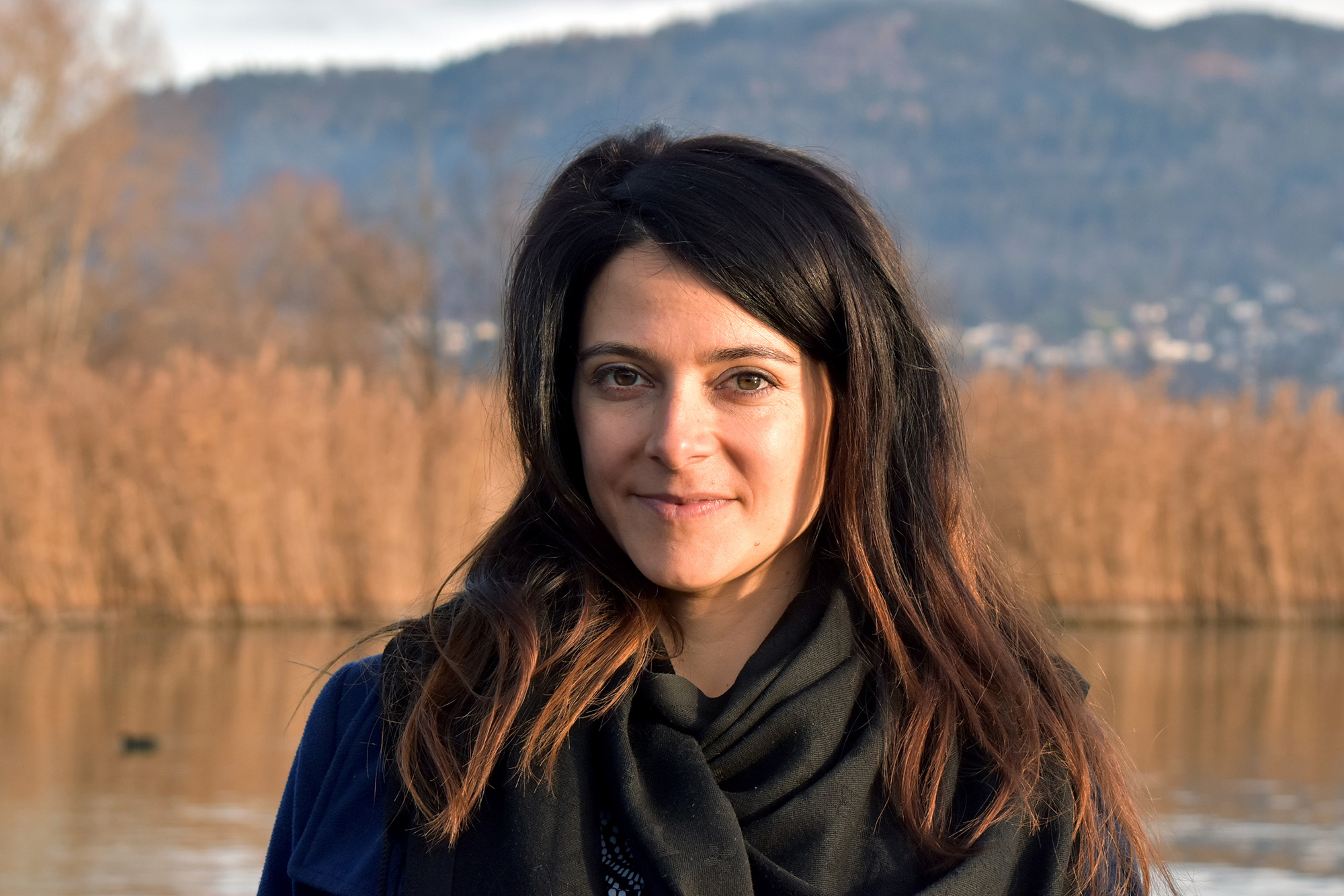
Switzerland adopted full membership of the League of Nations, headquartered in Geneva, in 1920, the year it was founded. The organisation was replaced by the UN, founded in New York, after the Second World War. The European headquarters, however, remained in Geneva.
New test
Now Switzerland and the UN face a new test: the UN General Assembly is voting in June on Switzerland’s candidacy for a two-year, non-permanent seat on the most important UN body, the Security Council. Approval is seen as a formality. The Swiss government submitted its candidacy in 2011. Since 2013, the 190th member of the UN, along with two dozen other member states, has been campaigning for democratic reform of the Security Council, including more public meetings.
Switzerland today has 1,050 experts in the UN system, with 450 of them working in senior positions, according to Florian Gubler of the UN section of the Swiss foreign ministry.
That corresponds to 1.1% of the available high-ranking positions and is nearly equivalent to Switzerland’s contribution to the UN budget, amounting to 1.114%. That makes Switzerland the 17th-biggest contributor to the global body. More than a quarter of all UN employees – 11,700 people – work in Switzerland, mainly in Geneva. No other country in the world hosts as many UN staff.
Despite the many job opportunities, Switzerland and the UN are not always an easy match.
“Particularly in Geneva, the number of jobs for domestic candidates is very limited because of the global distribution requirements,” says Nora Landheer, who keeps an eye on UN jobs at the career advisory platform cinfo in Biel.
“On the other hand, many Swiss citizens living abroad are not aware that they can apply for a UN job, and we can help them.”
At home, Switzerland’s wish to join the Security Council has triggered a new debate about the UN. In response to a motion by the right-wing People’s Party, the Swiss parliament will discuss the country’s candidacy in mid-March. The People’s Party was the only governing party that opposed UN accession in 2002.
Suter fears “damage to our image on the international stage” if the candidacy is withdrawn. The Swiss foreign ministry, however, says it welcomes this new discussion in parliament.
Grassroots support
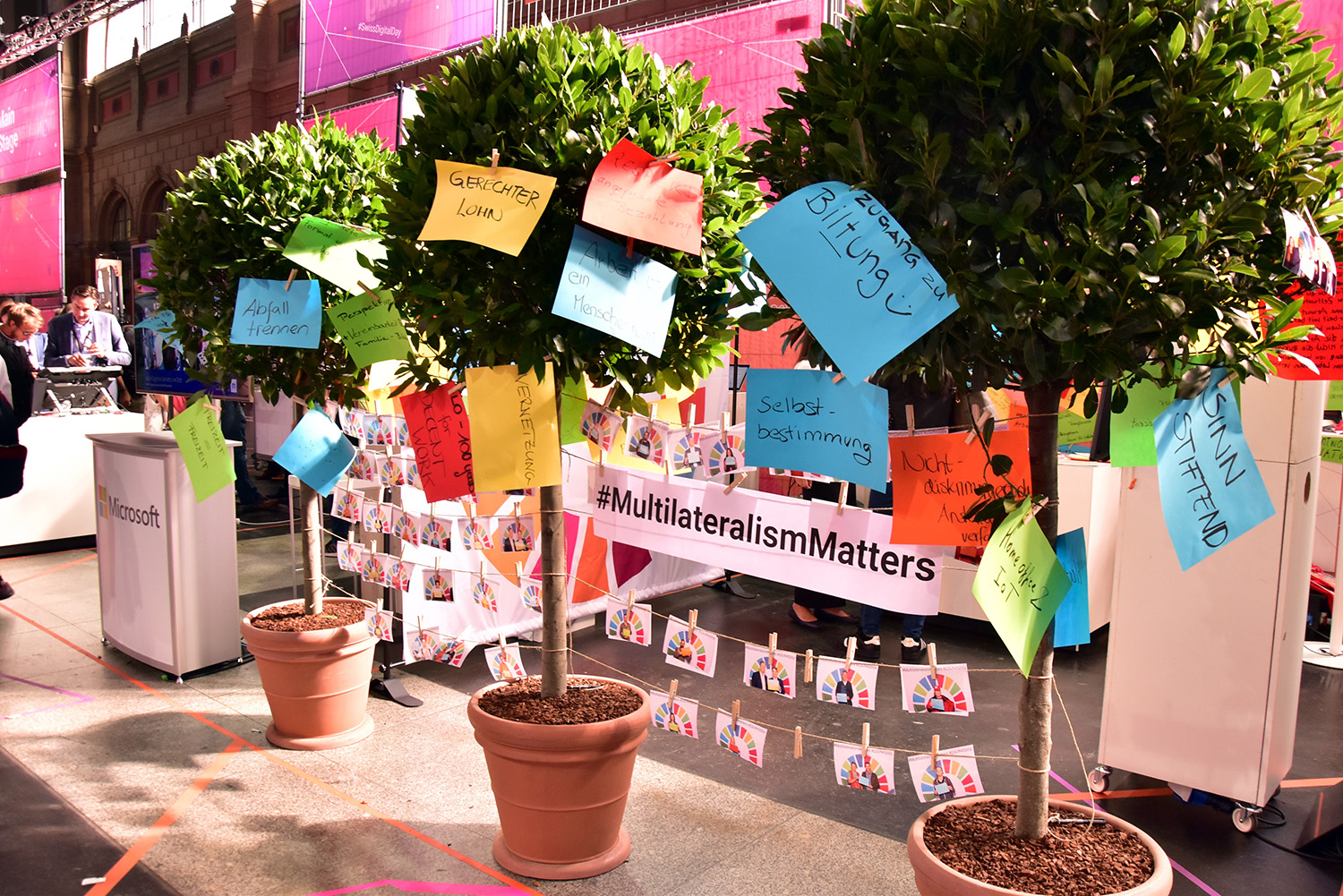
Over the past two decades a majority of Swiss have supported an active UN policy. But while UN membership was put to Swiss voters and decided by referendum, this is not the case for the Security Council seat.
For Suter, the priority is to strengthen civil society’s engagement for Swiss membership of the Security Council. A digital participation platform is currently being developed. Andreas Gross, the former member of parliament, also sees some need for action in this direction.

“I don’t think the Swiss diplomatic service has made the most of the uniquely democratic nature of its membership,” he says.
Despite this, the co-initiator of the successful accession initiative makes a positive assessment.
“Switzerland is now at home in the UN,” he says. “But it remains the only UN member whose seat on the Security Council is more controversial domestically than it is at the UN General Assembly.” That too is part of the special relationship between these two unequal partners.
The Security Council is the highest and most important decision-making body of the United Nations. It consists of five permanent members: the US, Russia, China, France and the United Kingdom, the so-called veto powers. In addition, there are ten non-permanent members who are elected by the UN General Assembly for two years.
For historical reasons, the five permanent members of the Security Council – the victors of the Second World War – have the right of veto. They can block any decision. The non-permanent members therefore have an important role as mediating voices to resolve a deadlocked situation.
According to the UN Charter, the Security Council bears the main responsibility for maintaining world peace. It can impose sanctions or authorise military intervention if international security is threatened. Its decisions are binding under international law for all UN member states – this is in contrast to decisions of the General Assembly.
Switzerland is running for a non-permanent seat on the Security Council for the 2023/24 period under the slogan “A plus for peace”. The Federal Council decided and submitted the candidacy in 2011 after extensive consultations with parliament.
The elections will take place in June 2022 in New York. The electoral body is the UN General Assembly, comprising 193 countries. Switzerland’s chances are good, as only Malta is the only other country in the running for the two seats for Western countries.

In compliance with the JTI standards
More: SWI swissinfo.ch certified by the Journalism Trust Initiative

































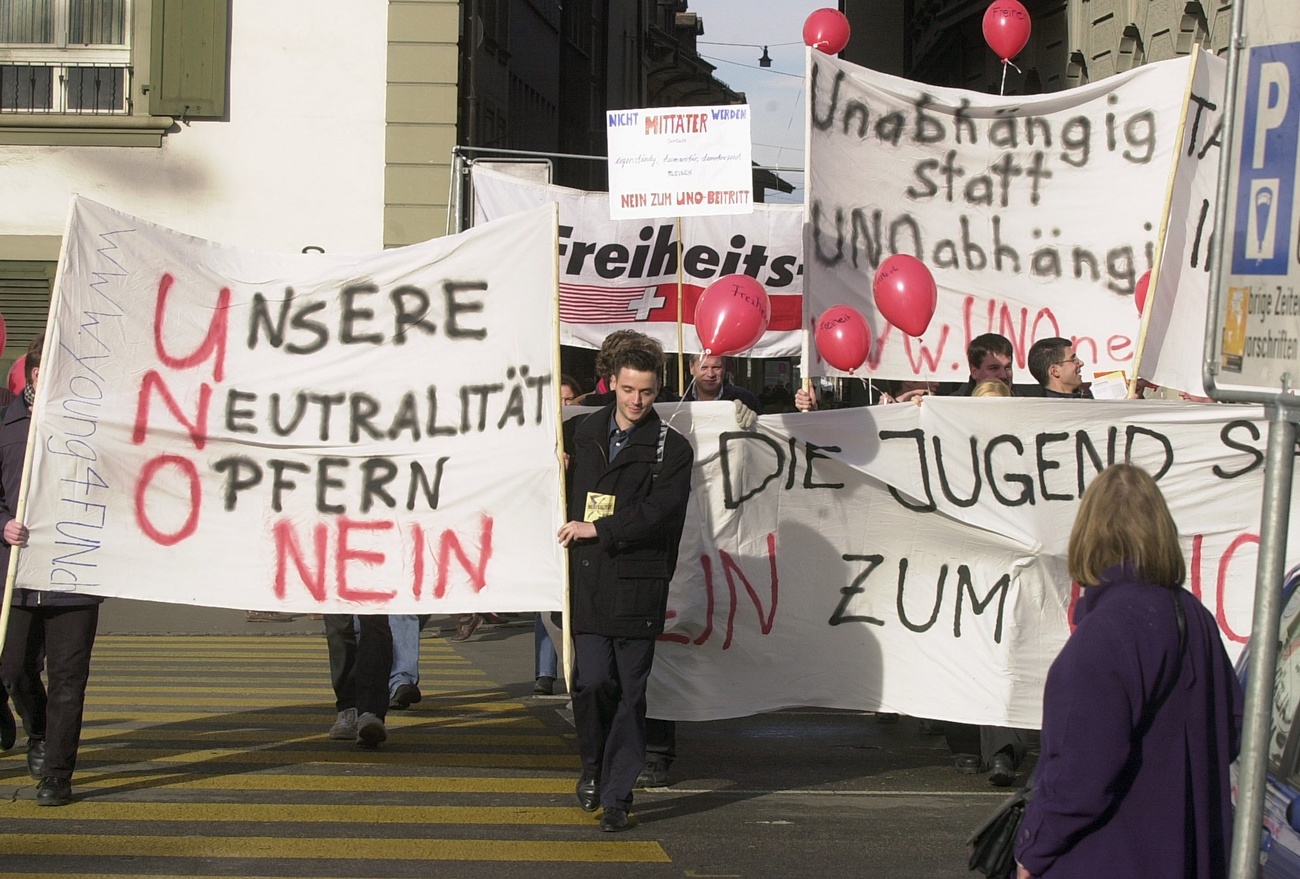
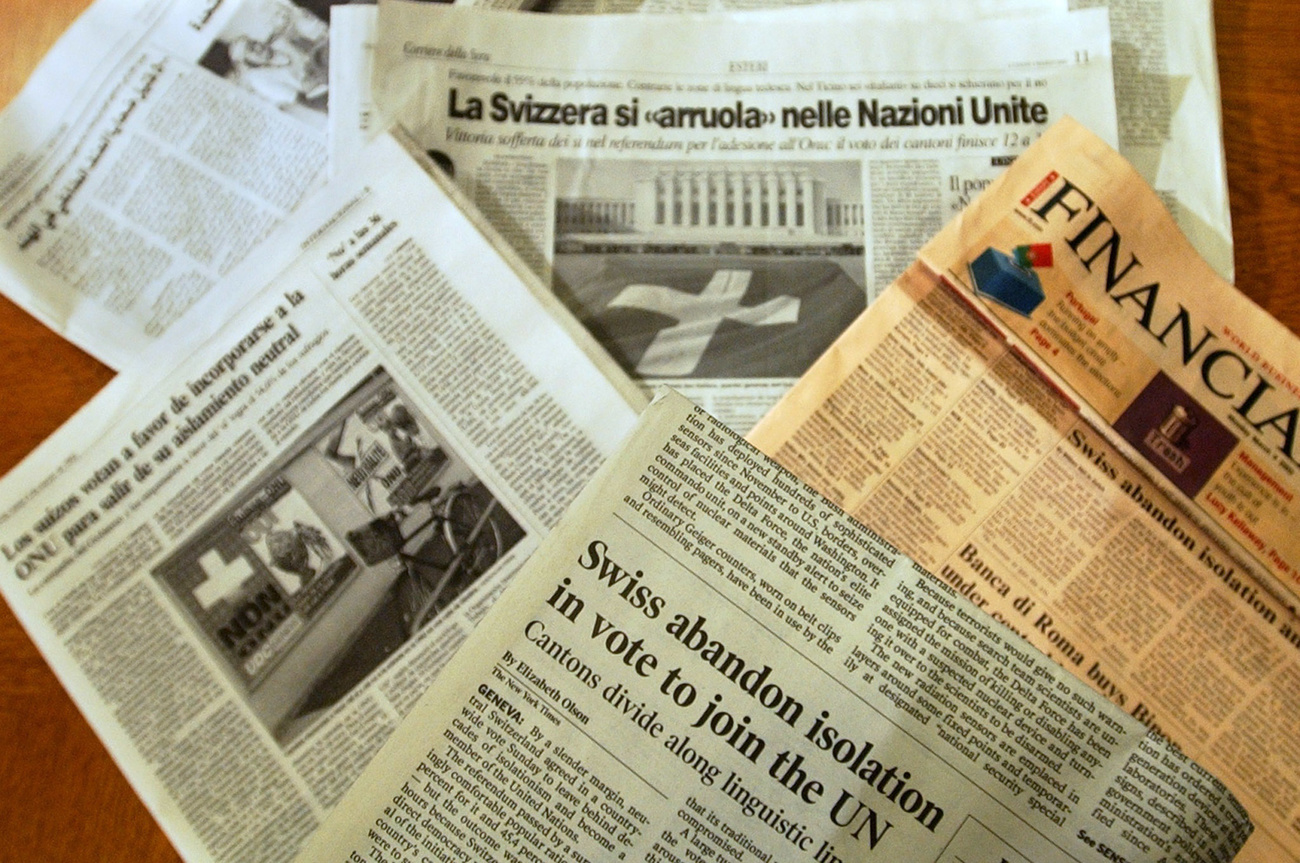

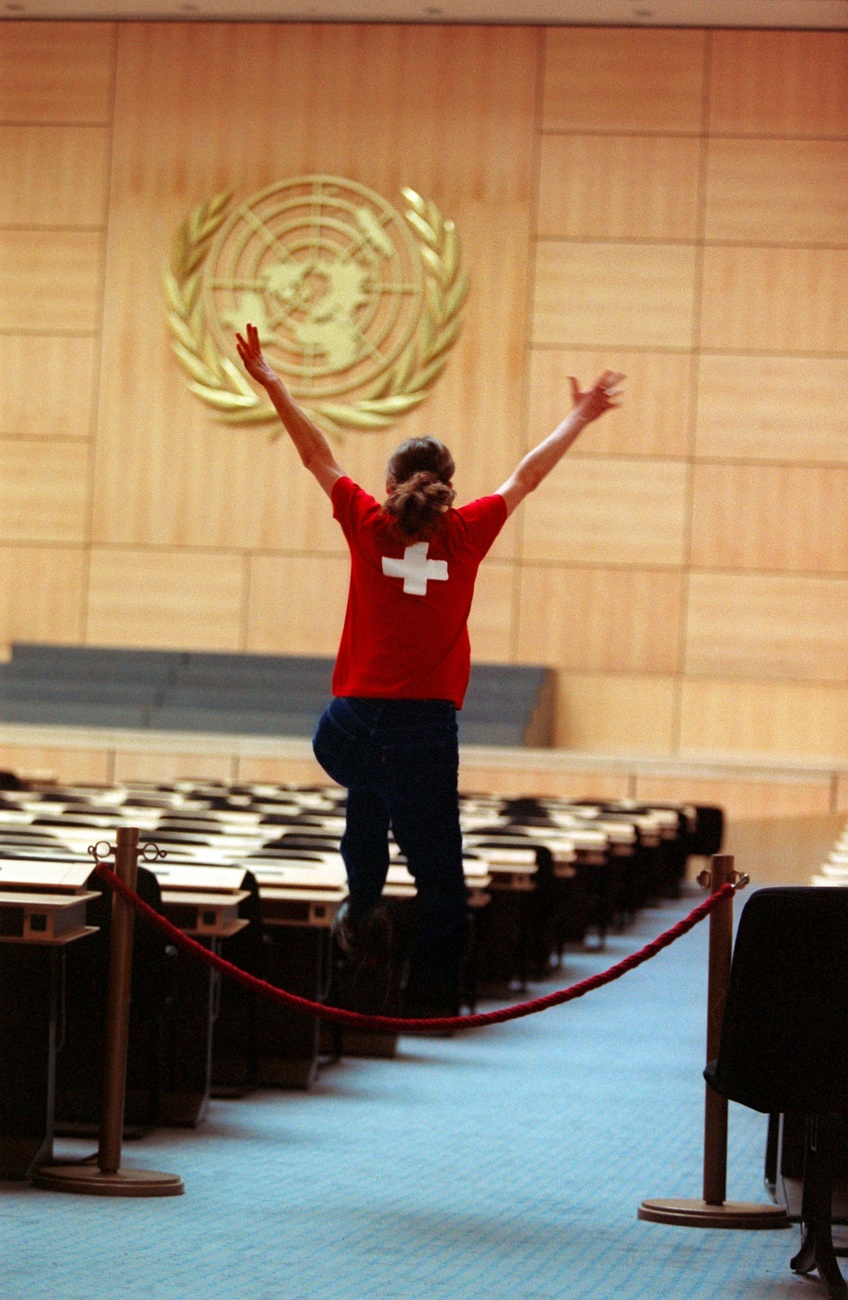
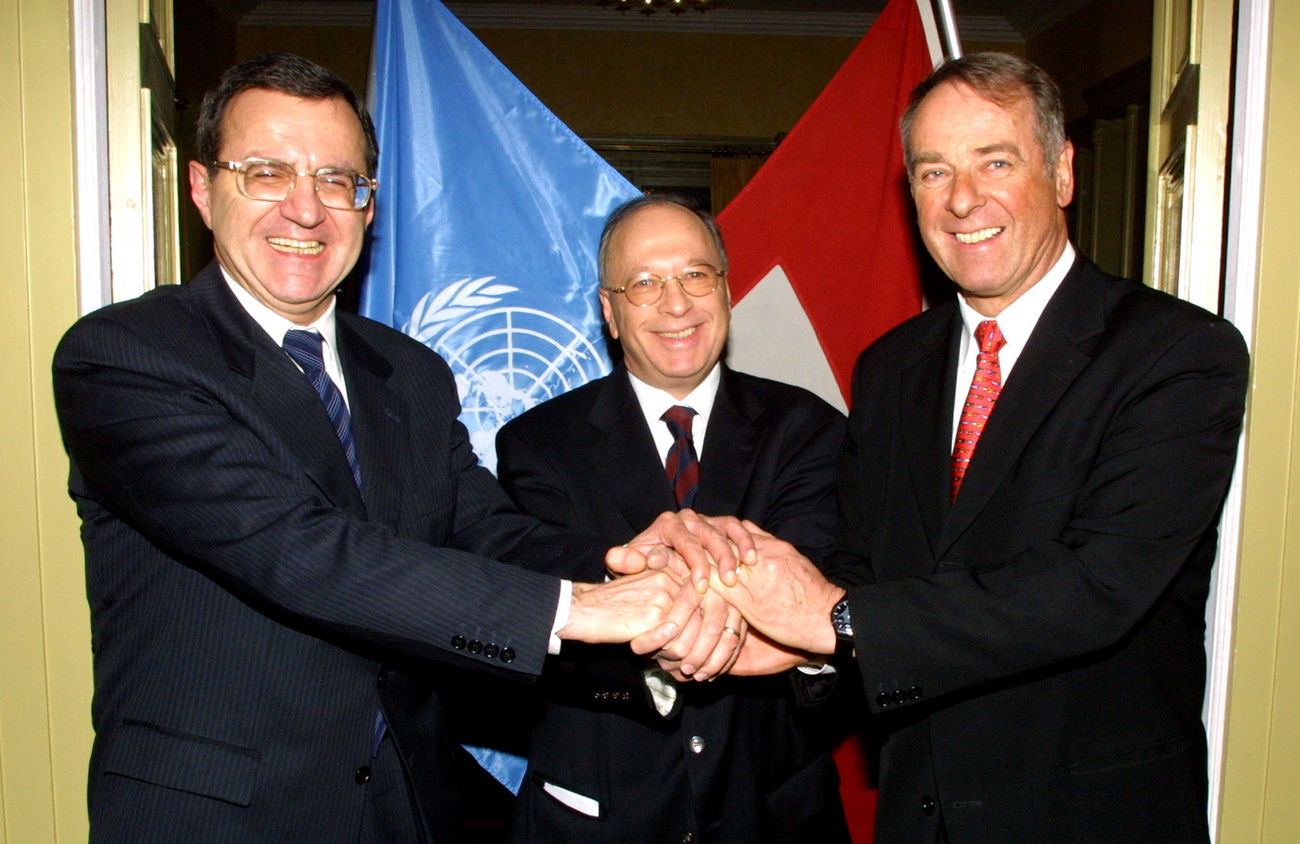
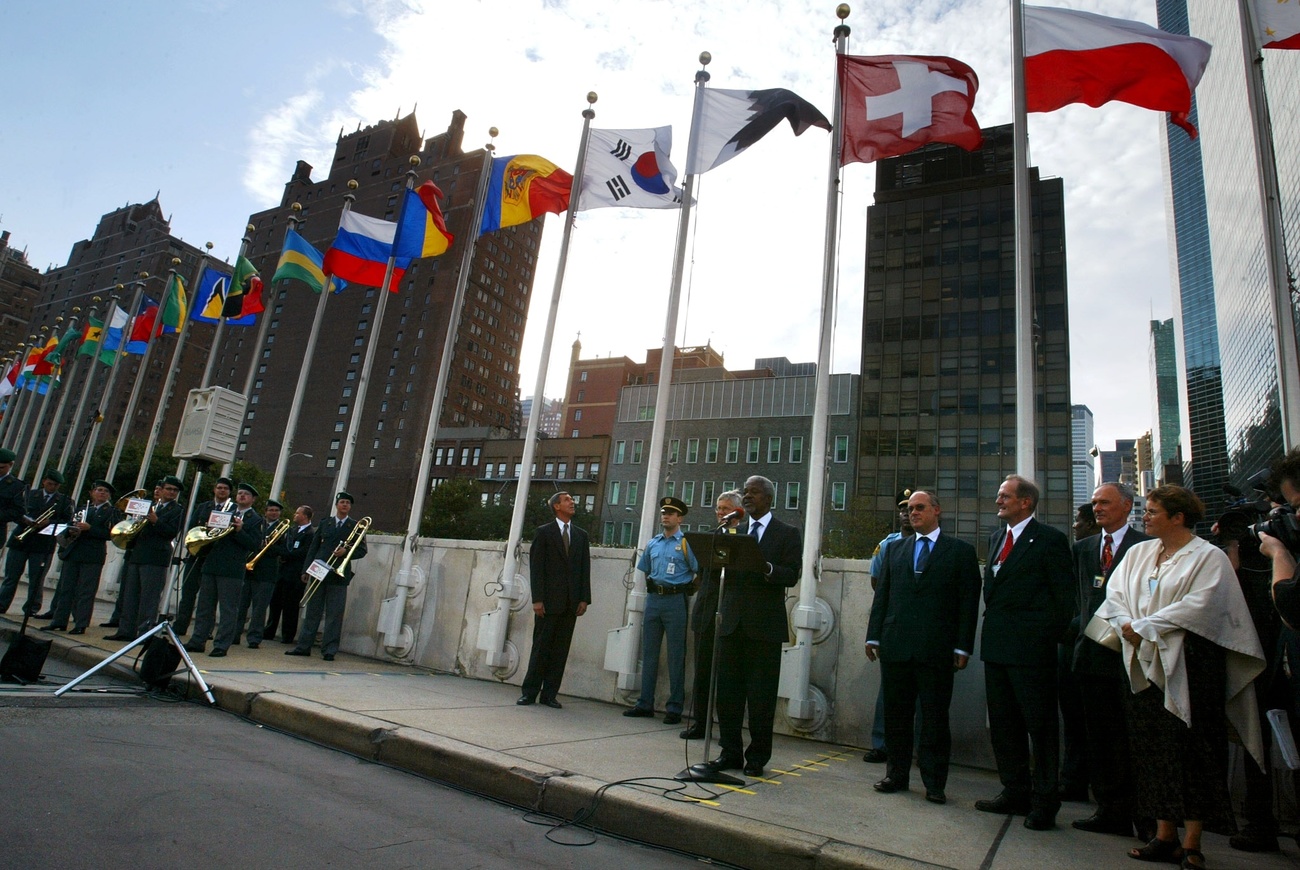

Join the conversation!